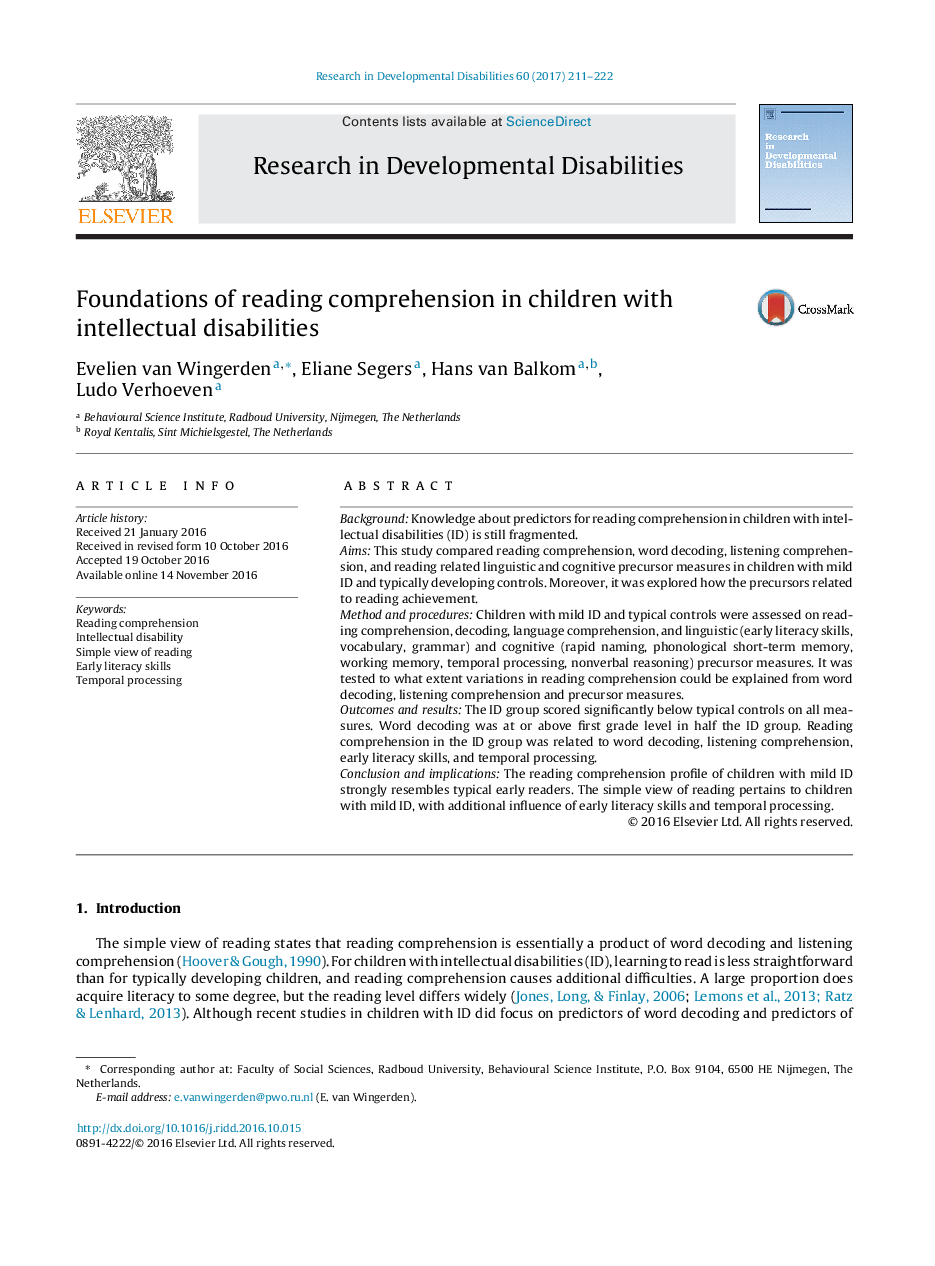| Article ID | Journal | Published Year | Pages | File Type |
|---|---|---|---|---|
| 4941029 | Research in Developmental Disabilities | 2017 | 12 Pages |
BackgroundKnowledge about predictors for reading comprehension in children with intellectual disabilities (ID) is still fragmented.AimsThis study compared reading comprehension, word decoding, listening comprehension, and reading related linguistic and cognitive precursor measures in children with mild ID and typically developing controls. Moreover, it was explored how the precursors related to reading achievement.Method and proceduresChildren with mild ID and typical controls were assessed on reading comprehension, decoding, language comprehension, and linguistic (early literacy skills, vocabulary, grammar) and cognitive (rapid naming, phonological short-term memory, working memory, temporal processing, nonverbal reasoning) precursor measures. It was tested to what extent variations in reading comprehension could be explained from word decoding, listening comprehension and precursor measures.Outcomes and resultsThe ID group scored significantly below typical controls on all measures. Word decoding was at or above first grade level in half the ID group. Reading comprehension in the ID group was related to word decoding, listening comprehension, early literacy skills, and temporal processing.Conclusion and implicationsThe reading comprehension profile of children with mild ID strongly resembles typical early readers. The simple view of reading pertains to children with mild ID, with additional influence of early literacy skills and temporal processing.
